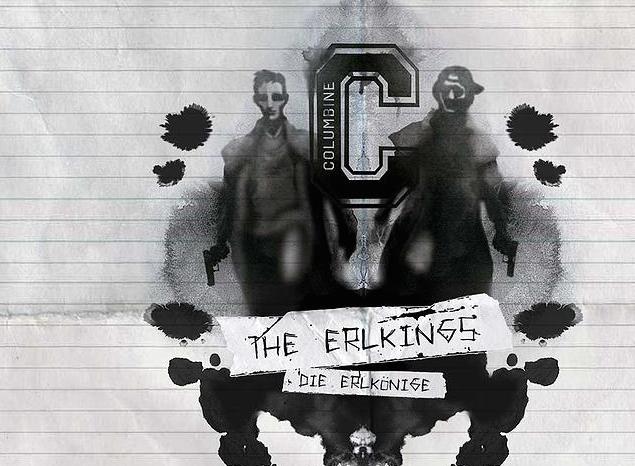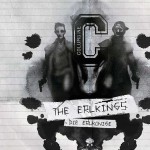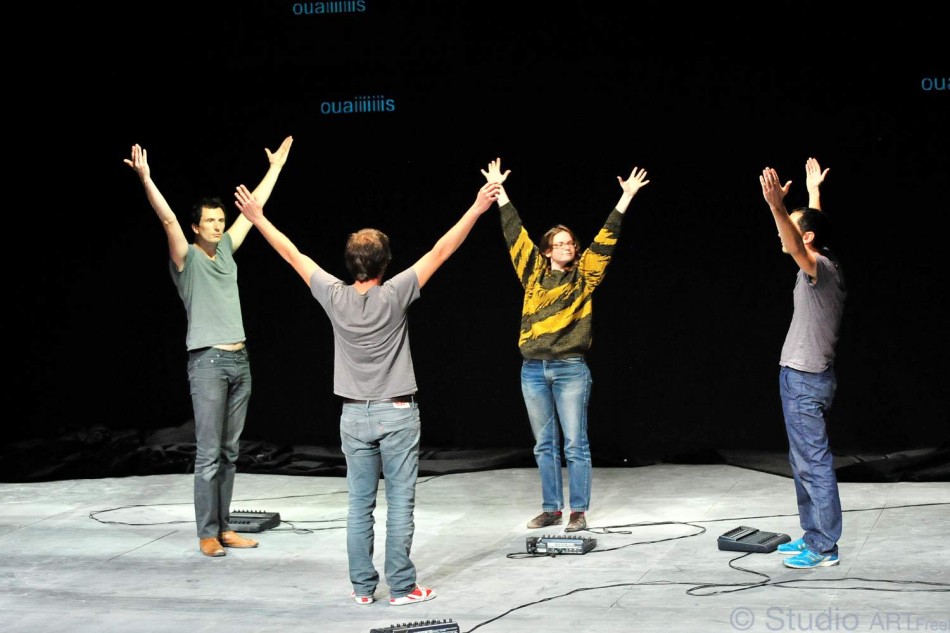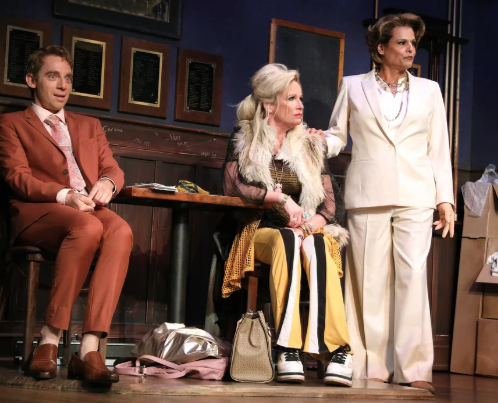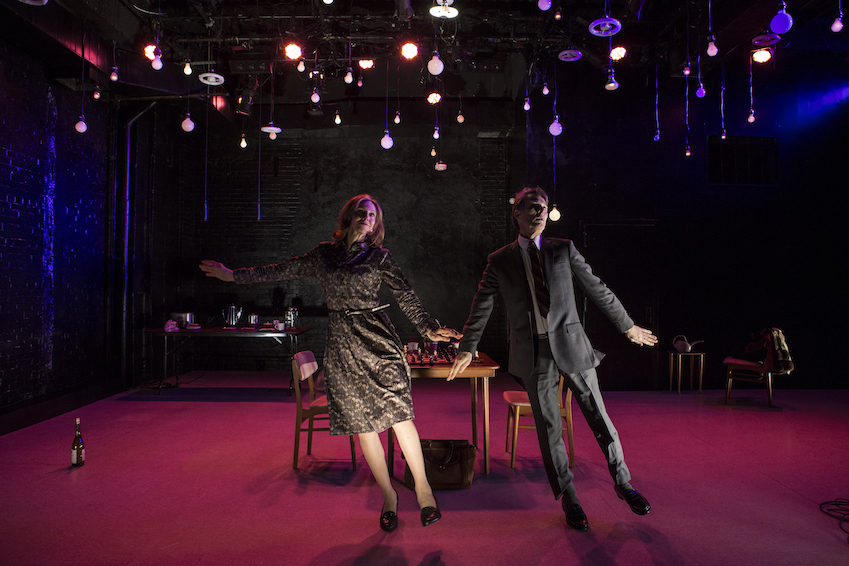NY Theater Review by Samuel L. Leiter
The 1999 massacre at Colorado’s Columbine High School was by no means the first incident of murder at an American school, but its death toll of thirteen (two more when the perpetrators’ suicides are included) plus two dozen wounded made it the most horrific prior to the Sandy Hook shootings in 2012. The incident, already the inspiration of movies and plays, is now being tackled in Nathaniel Sam Shapiro’s The Erlkings at the Beckett Theatre.
Despite all the soul-searching, no satisfactory answers exist to explain what caused two highly intelligent but hate-filled high school boys, Eric Harris and Dylan Klebold, to plan a complex attack using bombs and guns that, had it succeeded as intended, would have killed or maimed nearly 500 people. The Erlkings hopes to open a door into their psyches by combining original dialogue with material from the boys’ journals, poetry, web postings, teachers’ reports, videos, and other evidence they left behind. The title comes from a poem by Goethe that Eric had wanted to memorize. It concerns a child riding on a horse with his father who ignores the child’s warning about the Erlking, a forest spirit that eventually kills the father. The first act ends with Eric lip synching and Dylan supposedly playing the piano as a version set to music by Franz Schubert plays offstage.
The Erlkings, which stops short of showing the killings, is presented in an episodic, highly theatricalized staging intended to reveal the thinking and behavior of the psychopathic duo, displaying them as both boyishly ordinary and disturbingly dangerous. Director Saheem Ali’s nearly two-hour production, for all its inventiveness, however, is only sporadically gripping, as it sets up too many aesthetic barriers that serve more to alienate than to engage continual attention in what is, after all, a foregone conclusion. The leads are unpleasant misfits, and the students and others they interact with—played by an ensemble each of whom undertakes two or three roles—are too exaggerated to take seriously. What happened at Columbine was the result of a thoroughly thought-out operation; if properly dramatized, it might be more enlightening than the one on view here.
The Erlkings is performed on an essentially bare stage, designed by Dos Freel and creatively lit by Katy Atwell, whose most prominent features are two square architectural pillars. Overhead are nearly three dozen backpacks, perhaps symbolizing the victims. On several occasions, a bag drops to the stage and becomes part of the action. An imaginative sound design by Michael Thurber provides both ambient effects and music reflective of the boys’ world.
James Scully, tall, with a thick shock of black hair, and wearing a t-shirt saying “WRATH,” plays Dylan with a convincing combination of crudeness and immaturity, but Em Grosland, although talented, is a distracting choice as Eric. Casting an androgynous actress (a head and half shorter than Scully), her boyish hair in a spiky do and her t-shirt declaring “NATURAL SELECTION,” may be an ironic comment on Eric’s otherness in a jock-dominated world, but it detracts from the character’s believability. It’s hard to see gender confusion as central to the Columbine shootings.
In his playwright’s notes, Shapiro wrestles with the meaning of Columbine and how we tend to dehumanize killers like Eric and Dylan, whose behavior, he argues, is human, not inhuman. He believes that by distancing ourselves from those young American males who choose to act out through violence, the impulses embedded in them by “something” in our culture, we will never be able to prevent other such tragedies from happening. “What they needed was to be reached.” This not only ignores the extensive counseling and medication the boys received, it denies the existence of unmitigated evil, which no amount of reaching out will ever alter.
The Erlkings
Beckett Theatre
410 W. 42nd Street
Through December 13


